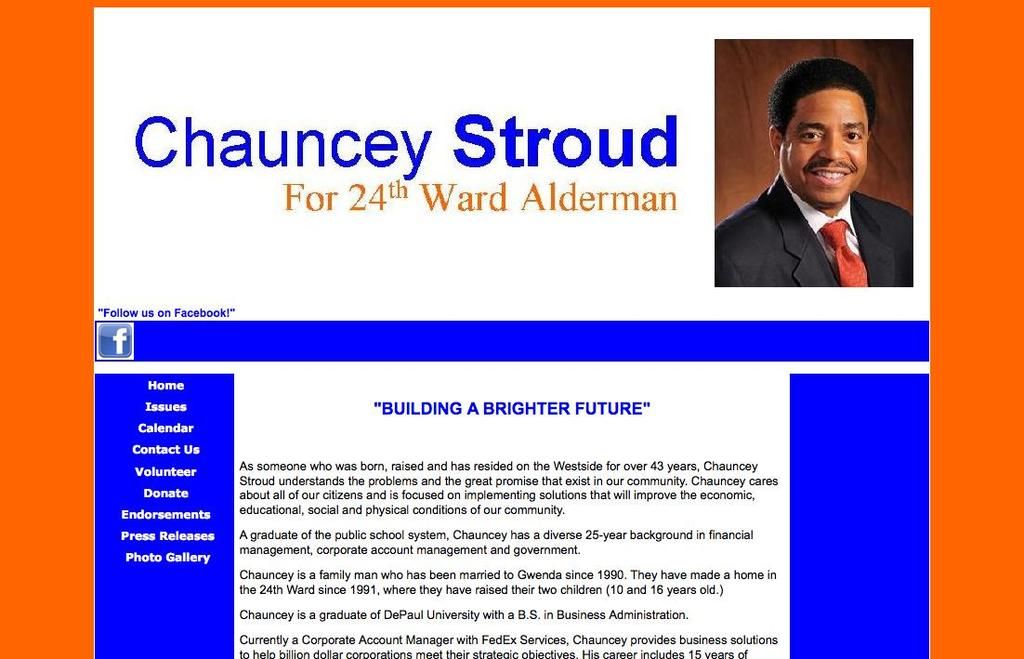Surviving and Thriving: The Evolution of African American Vernacular English (AAVE)
Language Shifting as a Lifeline: The Instrumental Use of Language for Existence
Trace back five centuries to the inception of the Transatlantic Slave Trade, and you'll find the roots of AAVE. Enslaved West Africans, speaking myriad languages, blended their mother tongues with the English dialects of their enslavers. This evolving lingo served as a vital lifeline for sharing vital information and preserving cultural traditions amidst brutal oppression.
This wasn't merely talk—it was resistance, a means of survival.
Through the Great Migration, the Civil Rights Movement, and the Reconstruction Era, AAVE continues to develop, each era shaping this unique dialect with fresh twists of words and phrases.
AAVE isn't a fractured version of Standard English or "broken English." It carries its own phonological, syntactic, and lexical regulations. For those unfamiliar with these terms, phonology governs the sounds letters and groupings make, syntax dictates sentence structures, and lexicon rules define word alterations and usage. It's an organized system deeply woven into modern American English through music, literature, and pop culture, though it often encounters negative connotations in formal settings.
Despite being a legitimate dialect, speakers of AAVE continue to face discrimination in schools and the workplace, where Standard English is seen as the ideal way to communicate. Many feel compelled to alter their speech or practice code-switching to fit in and secure opportunities.
Code-switching refers to the ability to switch between languages or dialects depending on the situation.
Fortunately, ongoing research and cultural advocacy are challenging these biases, revealing AAVE's importance in America's rich linguistic tapestry. Yet, the need to conform can breed a sense of identity loss and reinforce the notion that AAVE isn't a valid language or form of expression in certain spaces.
In many workplaces and schools, there's an unspoken expectation for Black individuals to "sound professional" by opting for Standard English instead of AAVE. This bias stems from societal prejudices that link the way you talk to your intelligence and credibility.
John McWhorter, a linguist at Columbia University, highlights the long-standing prejudice against nonstandard dialects, despite their complex histories. His research sheds light on how these biases persist in American society, affecting how people perceive AAVE, or what's less formally known as Black English, and other dialects such as Patois in media, schools, and workplaces.
McWhorter also notes that professionals tend to soften the language when referring to AAVE, using euphemisms like "Black English," "Ebonics," or "urban slang" to avoid offending or appearing racially insensitive. Linguists often use the term "AAVE" to emphasize the dialect's legitimacy and systematic features.
Media representations often oversimplify AAVE, labeling it "slang" or "street talk," reducing its depth and reinforcing stereotypes.
McWhorter's courses like "Language in America" and "Language Contact" delve into these issues, equipping students with an understanding of the cultural significance of Black English while challenging the notion that Standard English is the only valid form of communication in professional and academic settings.
Code-switching can be a useful strategy for navigating different social situations, but it raises crucial questions about fairness and identity. The expectation for Black people to suppress AAVE in professional settings further marginalizes their linguistic heritage.
However, as people become more aware of these issues, more scholars, educators, and activists are advocating for AAVE to be recognized as a legitimate dialect rather than a barrier to success.
Moreover, constantly switching between language styles can be exhausting. It creates the feeling of being two different people – one at work or school, the other at home or with friends.
Even at places like Bronx Science, students like Gabriela Tejeda '26, find themselves needing to code-switch often. "Code switching tends to be part of my daily communication," Tejeda states, "But more than ever, I switch my 'code' when I go from speaking to an adult to someone closer to my age."
"Growing up in various environments to avoid being shunned," she continues, "I adopted the language. But more than ever, it happens naturally and unintentionally. I will just think 'Why am I talking like that?'"
"Code-switching is necessary for success – at least in the society we live in," Tejeda remarks. As McCluney et al. (2019) notes, Black professionals are often expected to work "twice as hard" to prove themselves when they speak using AAVE more than Standard English speakers, and code-switching is the primary reason for that struggle. While it may help someone climb the career ladder, it further legitimizes the notion that AAVE isn't "good enough" for professional environments. If people have to change the way they talk to be respected, can we call this truly equal?
Beyond the workplace, AAVE plays a pivotal role in pop culture, particularly on social media, in music, and in advertising. Words like "period" and "sis" have gained popularity, but their roots in AAVE are often ignored. This phenomenon reflects a larger trend and enduring issue where Black culture is celebrated when embraced by non-Black people but dismissed when embraced by the people who created it.
This dilemma raises a fundamental question: Why is AAVE seen as unprofessional when spoken by Black people yet trendy when used by White colleagues, influencers, and celebrities?
Ultimately, the way society views code-switching and AAVE illustrates that language is more than just speaking—it's power.
"I want to create formality and the image of an intellectual young woman when speaking to an adult," said Tejeda.
This bias impacts who gets taken seriously and who doesn't. If some dialects are deemed inferior while others are touted, then language isn't about communication—it's about who gets to be heard.
Society should instead challenge what "professional" language means. Haven't all thriving languages been 'professional'? What makes them not?
"People have trouble listening to people who don't speak 'correct' English, but it appeals to those who speak the same way or set a comfortable tone," Tejeda reflects.
The recent repeal of the Equal Employment Opportunity (EEO) provisions, originally part of Executive Order 11246, signed under Lyndon B. Johnson in 1965, marks a significant step backwards in U.S. employment policy. This policy shift has disastrous consequences for marginalized racial, immigrant, religious, gender, and sexuality communities in America.
Without the DEI initiatives encompassed by the EEO provisions, work environments may grow more uniform, stifling innovation and making it harder to compete globally. Historically, affirmative action programs have combated systemic discrimination, providing better access to jobs for these communities. The absence of such programs increases the risk of reinstating exclusionary hiring practices reminiscent of the Jim Crow South, widening existing economic gaps.
For example, the U.S. Postal Service (USPS) has been instrumental in building the Black middle class by offering stable jobs. Currently, around 29% of the USPS's workforce is Black. The potential privatization of USPS under the current administration could threaten this legacy, leading to job losses and decreased economic stability, not just for Black communities, but for America as a whole.
Beyond the workplace, the cancellation of 400 DEI and environmental justice grants worth $1.7 billion by the Environmental Protection Agency (EPA) could exacerbate environmental issues disproportionately affecting vulnerable communities. The Office for Civil Rights within the Education Department has shifted away from enforcing disability services and addressing racial discrimination, potentially leaving critical issues unresolved and heightening educational inequities.
Philosophically, the repealment of EEO provisions asks us to critically ponder the nation's commitment to justice and equality. Isn't it time to reflect on how far society is willing to go to "purify" this nation?
"I don't think that the perception of AAVE is changing, but I do think that more people are becoming successful despite using it," said Tejeda. "But we have a lot of progress left to make."
The linguistic society of America (LSA) acknowledges AAVE as a legitimate dialect, countering the misconception that it is merely "broken English." To advocate for its inclusion in linguistic education, scholars strive to inform both teachers and the public about its legitimacy, moving away from the negative perspectives prevalent in discussions about nonstandard dialects.
Efforts are underway in schools to incorporate linguistic diversity, partially through the integration of AAVE into subjects like sociolinguistics and English studies. Institutions like Stanford University are starting to offer courses about AAVE, delving into its history and cultural significance, and emphasizing that all dialects deserve respect. Educators are also altering their approach to language instruction, recognizing that students who use AAVE aren't making grammatical errors but are adhering to the rules of their own dialect.
As cultural attitudes shift, younger generations are reshaping expectations around language use. Gen Z professionals are advocating for workplaces that value authenticity over conformity. Unlike older generations, who often felt pressured to code-switch at work, many young professionals today see linguistic diversity as an asset.
True linguistic inclusion means creating a society where code-switching is an option, not an obligation. The ultimate goal is not to erase code-switching but to ensure that no one feels compelled to suppress their linguistic identity in order to be respected. By valuing all dialects equally, we move closer to a world where language is a bridge rather than a barrier – one where authenticity isn't just accepted, but celebrated.
- The history of African American Vernacular English (AAVE) dates back to the Transatlantic Slave Trade, as enslaved West Africans blended their languages with English dialects, creating a unique linguistic expression that served both as a means of information sharing and cultural preservation.
- Despite its complex system, phonology, syntax, and lexicon, present in music, literature, and pop culture, speakers of AAVE often encounter discrimination in schools and the workplace, where Standard English is often viewed as the ideal form of communication.
- Code-switching, the ability to switch between languages or dialects depending on the situation, is a common strategy for Black individuals to navigate different social environments, but it also raises concerns about fairness and identity. This practice can create a sense of identity loss and reinforces the notion that AAVE isn't a valid language or form of expression in certain spaces.
- Ongoing research and cultural advocacy are challenging these biases by revealing AAVE's importance in America's rich linguistic tapestry. Scholars and educators are advocating for AAVE to be recognized as a legitimate dialect, rather than a barrier to success, and incorporating it into linguistic education.
- Younger generations are reshaping expectations around language use, with Gen Z professionals preferring workplaces thatvalue linguistic diversity. The ultimate goal is to create a society where code-switching is an option, not an obligation, and where all dialects, including AAVE, are celebrated.






